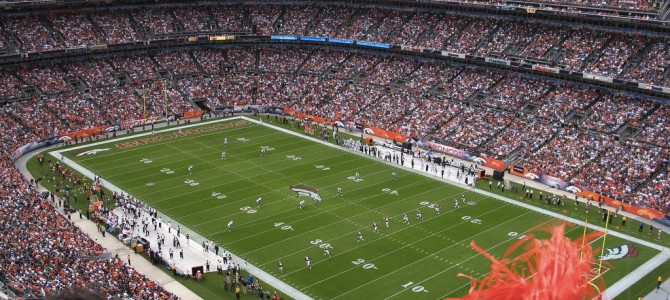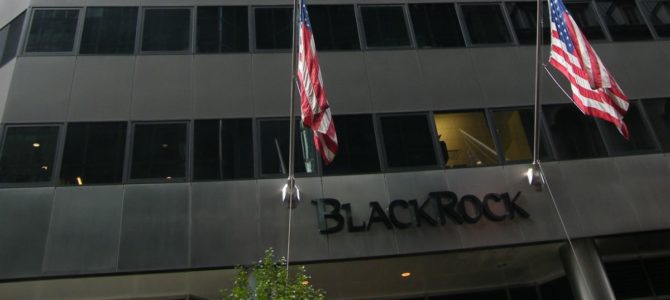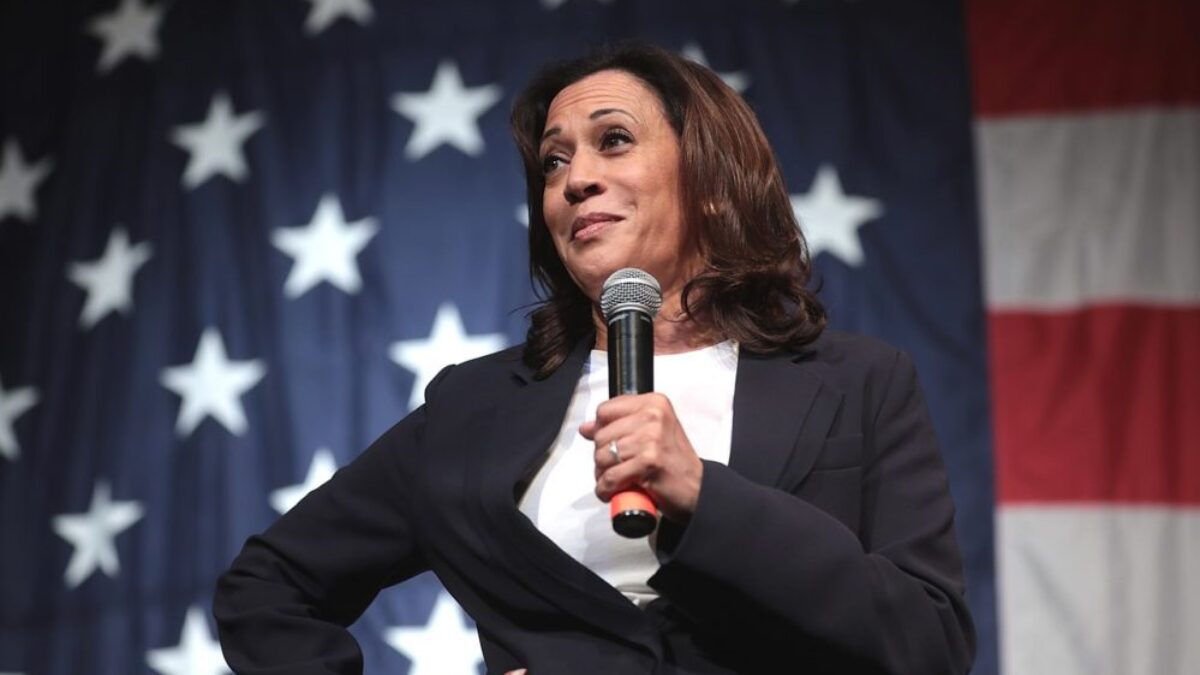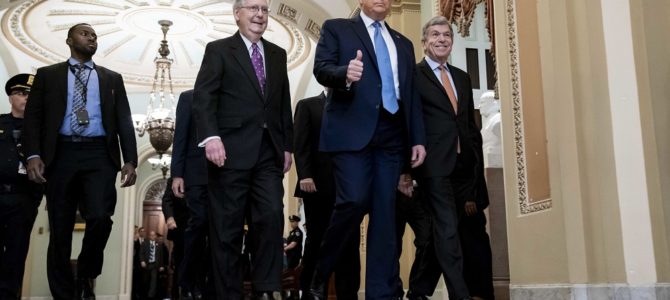
A man robs a bank and delivers the haul to his co-conspirator. Who’s to blame?
The court of public opinion would almost entirely fault the robber who physically committed the crime. Same for the court of law. But based on the way the media covers corporate welfare, especially in the realm of professional sports, it seems the fourth estate might find more fault with the guy receiving the bag of money than with the one who physically stole it.
While it’s hard to deny that the establishment media leans some degree left, and most certainly leans heavily toward an activist government in some form, there is one strain of small government proclivity that seems to persist through most major media outlets: a harsh disdain for corporate welfare, particularly for that received by professional sports teams.
In the last couple years, we’ve seen some pretty appalling instances of handouts for multibillion dollar sports leagues, most notably: $300 million to the Atlanta Braves, $300 million to D.C. United, $258 million to the Sacramento Kings, and the real kicker, $498 million (and counting) for the Minnesota Vikings. This kind of crony capitalism has become rampant in the last decade, and it’s hard to ignore the benefits it’s sprinkled on the politically well connected, with these handouts helping to steadily prop up the values of franchises—now largely freed from stadium construction costs—at astonishing rates.
The Washington Post’s George Will said in an interview with Reason magazine last September, “Big government is invariably, primarily a servant of the strong, of the organized, the educated, the affluent, the lawyered up,” and the Wall Street Journal’s Kim Strassel wrote a column earlier this month detailing a few of the countless ways the federal government writes legislation to favor particular businesses. The data sadly backs up these claims. An August 2013 study from the non-partisan Institute on Taxation and Economic Policy reports that states and localities are allocating $50 billion a year to corporate tax incentives (with $20 billion and counting going to major American sports teams since 1990) and that “despite the enormous expenditures being made on these programs, the evidence suggests that tax incentives are of little benefit to the states and localities that offer them, and that they are actually a drag on national economic growth.”
While this criticism for sports subsidies comes almost universally from writers and publications across the political spectrum, they continually seem to place the majority of their blame on the NFL, NBA, MLB, and NHL team owners receiving the money rather than on the politicians who actually fork over the cash and rob taxpayers blind.
Blaming The Owner
In a post on Atlantic Cities about the Atlanta Braves’ recent demands for taxpayer money to fund a new stadium, Mark Byrnes directed all of his derision towards the Braves’ claims and concluded the piece writing, “pro sports teams keep finding avenues for publicly subsidized projects.”
Or take this Forbes piece last July detailing the handouts billionaire New Orleans Saints and Hornets owner Tom Benson has received from the state of Louisiana, in which Benson’s name appears 97 times while there are only two mentions of governor Bobby Jindal and zero other mentions of any other politicians who actually enabled the deals.
In a post on the Sacramento Kings’ new stadium subsidy last April, Slate economics blogger Matthew Yglesias entirely directs his criticism toward the NBA owners, writing that they continually “get cities to pony up subsidies.”
And in an essay in The Atlantic last September on the NFL’s subsidies, Gregg Easterbrook placed much of the blame on politicians, but the headline The Atlantic’s editors chose for the story screams “How the NFL Fleeces Taxpayers,” rather than, say, “How Politicians Give Your Money to the NFL.”
The Nation writer Dave Zirin has even written an entire book titled “Bad Sports: How Owners Are Ruining the Games We Love.”
Or for a real chuckle, consider this incredibly shortsighted Salon piece earlier this month from Alex Pareene, which agrees that governments handing out billions in subsidies like candy is an issue—while name-checking every team owner on the map while declining to mention a single politician—but argues that the solution to that problem is to… Give those spineless officials even more (in fact, 100% socialized) control over those teams? Am I missing something?
Why We Should Blame The Politicians
Of course, it’s an easy narrative for journalists to point the finger at the extremely wealthy (usually male, usually white, usually arrogant) team owner for putting a gun to a magnanimous “public servant” and robbing them blind. (I’m guessing the media’s political leanings also contribute in some small degree to their inclination to avoid blasting the government when they have a big business private sector target.) But are the team owners really the ones at fault? Government officials have all the authority to simply say, “no.” They simply choose not to, likely due to a multitude of reasons, including but not limited to: a misguided belief that the investment will pay off, a fear of angering an extremely vocal minority of hardcore fans, and a desire to stamp their name on a civic project they can list on their resume come re-election time.
Easterbrook, who has written a book on the subject, is very blunt about his thoughts on this issue, saying that the blame is “definitely on politicians” and adding, “As long as politicians are foolish enough to give in, they’ll keep asking. Since the political leaders have encouraged this behavior, what keeps happening? They keep getting money.”
Slate editor in chief David Plotz agrees, saying on the December 23, 2013 episode of Slate’s sports podcast Hang Up and Listen, “I deplore craven city councils, and city governments, and state governments that capitulate to these leagues,” later adding when his co-host Stefan Fatsis asked if it would be more “ethically responsible” for pro sports teams to not ask for public funds, “I don’t see why owners should do that. The wrong that’s being committed here is being committed by public officials who capitulate to this.”
Neil deMause, a writer who focuses on stadium subsidies on his blog, Field of Schemes, says that the fault lies with both parties, though. In an email, he wrote, “There’s plenty of blame to go around, really. Owners can fall back on the defense that it’s only in their self-interest to ask, and politicians don’t have to say yes; elected officials can claim that it’s not their fault, they’re just being held up by greedy owners. Really, the system can’t work without both being in cahoots — it’s a bit like asking who’s to blame for corruption, people who offer bribes, or people who take them.”
While I certainly agree with deMause that both parties are at fault, it’s hard for me to place more blame on the one accepting free money rather than the one willfully handing it out. Sure, it’s almost always the team instigating these sweetheart deals by first asking for them from their friends in the capitol, but the real action here is being committed by the government in their rewriting the tax code or penning of massive checks. That the owners encouraged them to do so is not a worthy defense by any means. (The aforementioned bank robber would have a hard time getting off with that defense.)
Don’t agree? Let’s pretend you’re a child with two siblings. When your brother and sister turned 16, they both relentlessly pestered your parents to buy them new Ferraris. It’s an absurd demand, but they threatened to run away from home if they don’t get them. Your parents obliged and wrote six-figure checks. Now it’s your 16th birthday, and all you can look at are the two neon-hued sports cars parked in front of your house. You know that all you have to do is make the same request to your parents as your siblings, and you can have one yourself. It’s an easy call, right?
Now, undoubtedly, that analogy exaggerates the effects of subsidies on a corporation’s success, but you can see the point I’m trying to make: It’s somewhat understandable to ask for a some corporate welfare, especially if your competition is receiving some themselves or those free government handouts will simply go to another crony business if you don’t claim it. In Reason’s February issue, Tim Carney writes about the morality of private businesses lobbying for legislation that would increase their profits, arguing that such practices are ok so long as the policies they’re campaigning for don’t take away others’ property or liberty.
Imposing new taxes certainly falls in the “taking property” category, and the NFL should be rightly disparaged for their actions, but again, these actions are understandable to some degree. What’s not understandable is why politicians freely choose to hand this cash out by the billions. Sure, there’s the obvious one: Companies threaten to take their business elsewhere if their political connections don’t pay dividends with special privileges or shady deals, but it’s been proven time and time again that even if teams called their bluff and moved (an extremely rare occurrence), states and municipalities would still be saving taxpayer money by the boatload despite the minor shrinkage of the tax base.
Naming Names
Because of this kind of coverage, most casual consumers of this news are familiar only with the minor culprits behind these scams: Tom Benson, Minnesota Vikings owner Zygi Wilf, Detroit Red Wings and Tigers owner Mike Ilitch, Carolina Panthers owner Jerry Richardson, Florida Marlins owner Jeffrey Loria, etc. It’s time for the bulk of the scorn to be directed at the real Al Capones who enable this activity: Bobby Jindal, Minnesota governor Mark Dayton, Michigan governor Rick Snyder, Charlotte mayor Anthony Foxx, former Miami-Dade and Miami mayors Carlos Alvarez and Manny Diaz, and many more. These are the names that should be plastered in the headlines, but all too often, these ringleaders don’t even get a footnote.
As far as who the media blames, deMause disagrees with my conjecture. Writing in an email, he says, “Owners are usually very careful to try to keep themselves out of the public’s sights, claiming that they don’t want to be asking for subsidies, it’s just the nature of the business, etc., which means more media attention gets focused on the politicians who are carrying their water.” Easterbrook, however, seems to agree. “I have certainly seen that, and generally, my view is that this issue is not covered well,” he said. “Who likes arrogant owners? Jerry Jones? The guy’s an arrogant billionaire. [Politicians] are somewhat more sympathetic characters, at least more than the billionaire owners.”
So the next time you read about a team getting handed a nine-figure tax break or subsidy, ask yourself who’s really at fault. While the media may be wagging its finger at the private sector, take a closer look at the guys who actually robbed the bank.
Jim Pagels writes about sports innovations at his blog. You can follow him on Twitter at @jimpagels.









